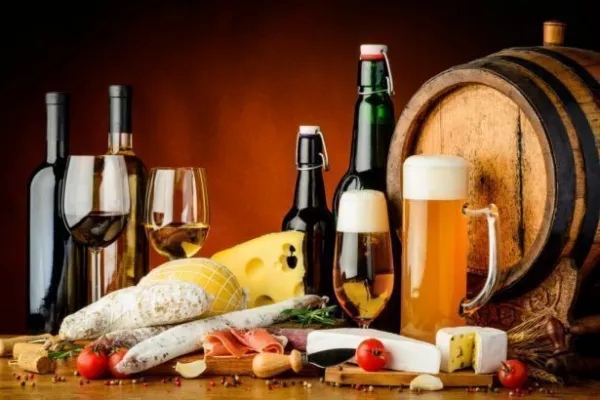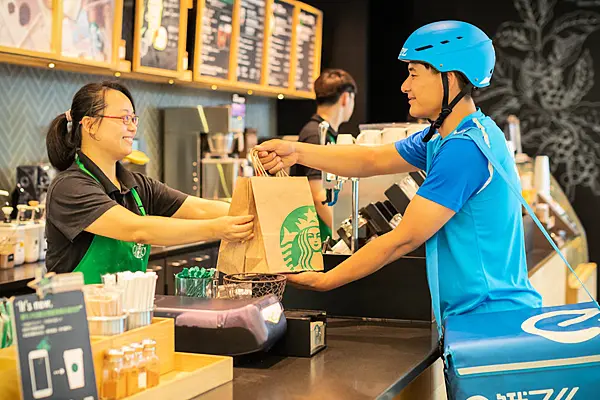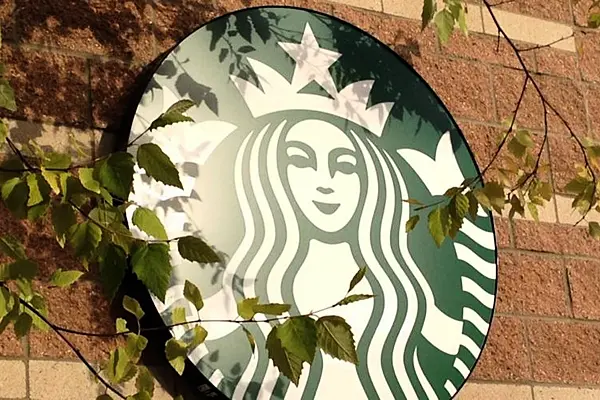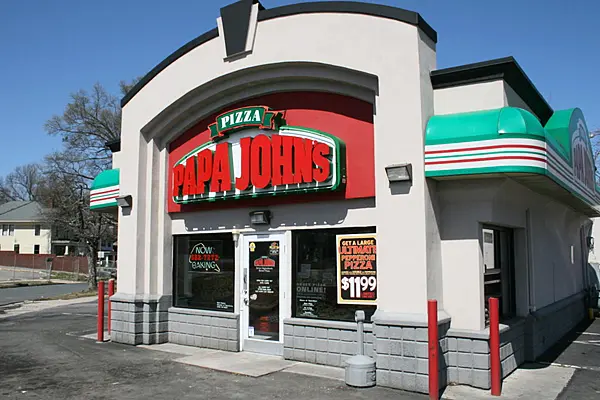Hospitality Ireland presents a round-up of global hospitality venue, drinks and food news.
Fertitta's Hotel Company, SPAC Call Off $8.6bn Merger
Billionaire Tilman Fertitta's hotel company Fertitta Entertainment Inc and blank-check company FAST Acquisition Corp said on Friday December 10 they had mutually agreed to terminate their $8.6 billion merger agreement.
The companies reached a settlement that provides FAST and its shareholders up to $33 million in upfront and deferred payments, a part of which is contingent upon whether the blank-check firm ultimately merges with a target, according to a statement by the companies.
"We ultimately determined that the right decision for my company was to remain private at this time, and I look forward to continuing to grow our business both organically and in-organically," Fertitta said in the statement.
The move comes after FAST refused to end its merger with Fertitta Entertainment, saying the termination, which was initiated by the company earlier this month, was invalid.
FAST said last week Fertitta's delay in delivering its financial statements is why the deal had not been closed by the termination date, and so it has no right to unilaterally break the merger agreement.
Fertitta had expanded its agreement in June to go public with blank-check company FAST Acquisition Corp to include a few hospitality and restaurant entities, raising the deal's value to $8.6 billion from $6.6 billion when the merger was announced in February.
MEDIA-Boutique Hotel Group Experimental Targets U.S. After €350m investment- FT
-- Source link: https://on.ft.com/3pNLIoa
-- Note: Reuters has not verified this story and does not vouch for its accuracy
Experts Count Coffee Trees In Brazil As prices Hit 10-Year Highs
Coffee experts working for commodity trading houses are taking to the narrow, winding roads in Brazil's Minas Gerais state as they tour the coffee belt checking 2022 crop prospects just as prices approach the highest levels in 10 years.
This has been a difficult year for coffee farming in Brazil, the world's largest producer. Prices surged after a drought and later frosts ruined as much as 20% of coffee trees, hitting future production. So far, those studying crops have produced wide estimates for the 2022 harvest, though traders for now are still betting on a less fruitful crop.
The people walking the fields will find the truth of that between now and the end of January, the optimal time for crop assessment.
"The rains that followed the frosts and drought produced a nice flowering, but now we have to see how many of those will grow into cherries," said Ryan Delany, chief analyst at U.S.-based Coffee Trading Academy LLC.
Arabica coffee futures on ICE gained more than 90% this year after the drought, frosts, and then a global container shortage that hampered shipping. The price surge led farmers in Brazil, Colombia and elsewhere to default on deliveries of pre-sold coffee.
During the tours, experts try to count pinhead cherries in the branches to come up with more detailed projections. So far, estimates released vary wildly.
Soft commodities analyst Judy Ganes, who was recently in Brazil with fellow analyst Shawn Hackett, estimated Brazil's arabica production at around 36 million bags, one of the smallest projections in the market.
Ganes says the vegetative health of the trees was damaged by drought and frosts, something others are not fully accounting for. She expects Brazil's total crop (including the robusta variety) to come in at 55 million bags, far from the record 2020 crop, the previous "on-year" crop in the biennial production cycle, that reached around 70 million bags.
Jonas Ferraresso, a Brazilian coffee agronomist, says the flowering was widespread after October rains, but the conversion to fruit was below normal.
"Many trees developed new leaves in the branches instead of berries, an unusual development probably linked to the harsh drought earlier in the year," he said.
Others are more positive.
Rabobank, which specializes in agricultural financing, expects a crop at 66.5 million bags, not far from the record, adding that such production would generate a global surplus of 3 million bags and cut prices below $2 per pound in 2022. U.S.-based trader Cardiff Coffee sees production at 63.1 million bags.
Paulo Armelin manages a farm with 220 hectares in the Patrocinio area, Minas Gerais, where the frosts were strongest. He said around 20% of his fields were hit by the cold snap and will not produce next year, but the rest was not affected.
"At least in my farm, the flowering was good and conversion to cherries looks fine," he said.
New China Import Rules Bring Headaches For Food And Beverage Makers
Makers of Irish whiskey, Belgian chocolate and European coffee brands are scrambling to comply with new Chinese food and beverage regulations, with many fearful their goods will be unable to enter the giant market as a Jan. 1 deadline looms.
China's customs authority published new food safety rules in April stipulating all food manufacturing, processing and storage facilities abroad need to be registered by year-end for their goods to access the Chinese market.
But detailed procedures explaining how to get the required registration codes were only issued in October, while a website for companies allowed to self-register went online last month.
"We're heading for major disruptions after Jan. 1," said a Beijing-based diplomat from a European country who is assisting food producers with the new measures.
China's food imports have surged in recent years amid growing demand from a huge middle class. They were worth $89 billion in 2019, according to a report by the United States Department of Agriculture, making China the world's sixth largest food importer.
China has tried to implement new rules covering food imports for years, triggering opposition from exporters. The General Administration of Customs of China (GACC), overseeing the latest iteration of the rules, has provided little explanation for why all foods, even those considered low-risk such as wine, flour and olive oil are covered by the requirements.
Experts say it is an effort to better oversee the large volumes of food arriving at Chinese ports, and place responsibility for food safety with manufacturers rather than the government.
GACC did not reply to a fax seeking comment on the rollout of the rules and why it has not given food producers more time to prepare.
The European Union has sent four letters to Customs this year requesting more clarity and more time for implementation, said Damien Plan, agriculture counsellor at the European Union Delegation in Beijing.
Last week, GACC agreed that implementation should only apply to goods produced on or after Jan. 1, effectively granting a delay for products already shipped, said the European diplomat, though it has not yet published an official notification.
Still, several diplomats and exporters said they saw the rules as a trade barrier for overseas products.
"We have never had anything this draconian out of China," said Andy Anderson, executive director of the Western United States Agricultural Trade Association (WUSATA), a trade group that promotes U.S. food exports.
He described the rules as a "non-tarriff trade barrier".
Food, especially chilled and frozen food, has already faced severe delays clearing Customs in China in the last year due to coronavirus testing and disinfection measures.
Foods including unroasted coffee beans, cooking oil, milled grains and nuts are among 14 new categories deemed high risk that were required to be registered by the end of October by food authorities of the exporting countries.
Facilities making low-risk foods can register themselves on a website that launched in November but has not always worked.
"The Chinese system is working now but the English one is on a trial version," said Li Xiang, business development manager at Chemical Inspection and Regulation Services Ltd (CIRS) Europe, which is helping companies with the registration process.
The rules only apply to facilities making finished products to be exported to China, but it provides little flexibility to change sourcing or labels.
Some U.S. spirits companies have registered but are still unclear on labelling requirements, said Robert Maron, VP International Trade at the Distilled Spirits Council of the United States.
"There is not a lot of time to understand what the requirements are and I think that is the main concern from our membership," he said.
No Irish whiskey makers assisted by CIRS Ireland have been able to register so far, said Li.
It is not clear what will happen if goods arrive without the required registration codes stuck onto packaging.
"For the moment, the information we got from (Chinese) authorities is that there won't be a grace period," he added.
Starbucks Shuts Two China Outlets After Reports They Used Expired Ingredients
U.S. coffee chain Starbucks said on Monday December 13 it had shut two outlets in China and was conducting an investigation after a state-backed newspaper reported that they used expired ingredients to make drinks, violating food safety rules.
The Beijing News newspaper, in what it described as an undercover investigation, said the incidents occurred at two stores in the eastern Chinese city of Wuxi.
"We take what was reported by local media very seriously, and have immediately closed the two stores in question to conduct a thorough investigation," a Starbucks spokesperson said.
"Since entering the Chinese mainland market 22 years ago, we have been committed to implementing strict food safety standards and adopt a 'zero tolerance' policy towards food safety issues. We welcome the continued supervision of members of the media and the public."
The company did not comment on the specifics of the report. The newspaper later said that local Wuxi authorities were probing the stores.
The incident became a trending topic on China's Twitter-like Weibo social media site after the report was published.
Chinese consumers and media have become more aggressive about protecting customer rights and monitoring the behaviour of big brands, especially from overseas.
Some targets, such as Canadian winterwear brand Canada Goose which drew complaints over its refund policies, have been subjected to government reprimands, while Chinese brands such as milk tea chain Nayuki have also drawn public attention.
China is the largest market for Starbucks outside the United States with 5,360 stores as of Oct. 3, the firm's latest earnings report showed.
The Beijing News report said one of the Starbucks stores used expired matcha liquid to make lattes, while another had put pastries up for sale that were meant to be thrown away.
As of Monday afternoon, the topic of Starbucks' response to the Beijing News report had received more than 50 million views on Weibo. Commenters expressed both disappointment and worries over more widespread problems.
"If Starbucks is like this, the other shops really worry me," said one Weibo user named Revario. "They suffer the scrutiny because it is a foreign brand."
News by Reuters, edited by Hospitality Ireland. Click subscribe to sign up for the Hospitality Ireland print edition.









